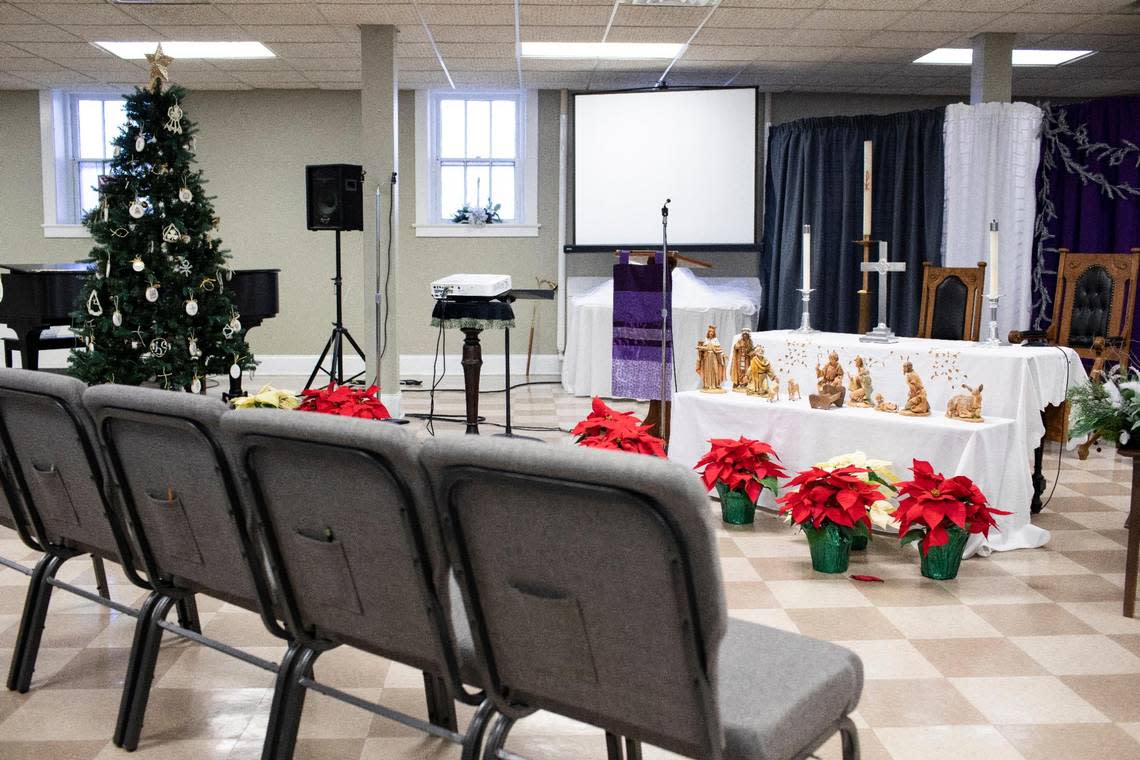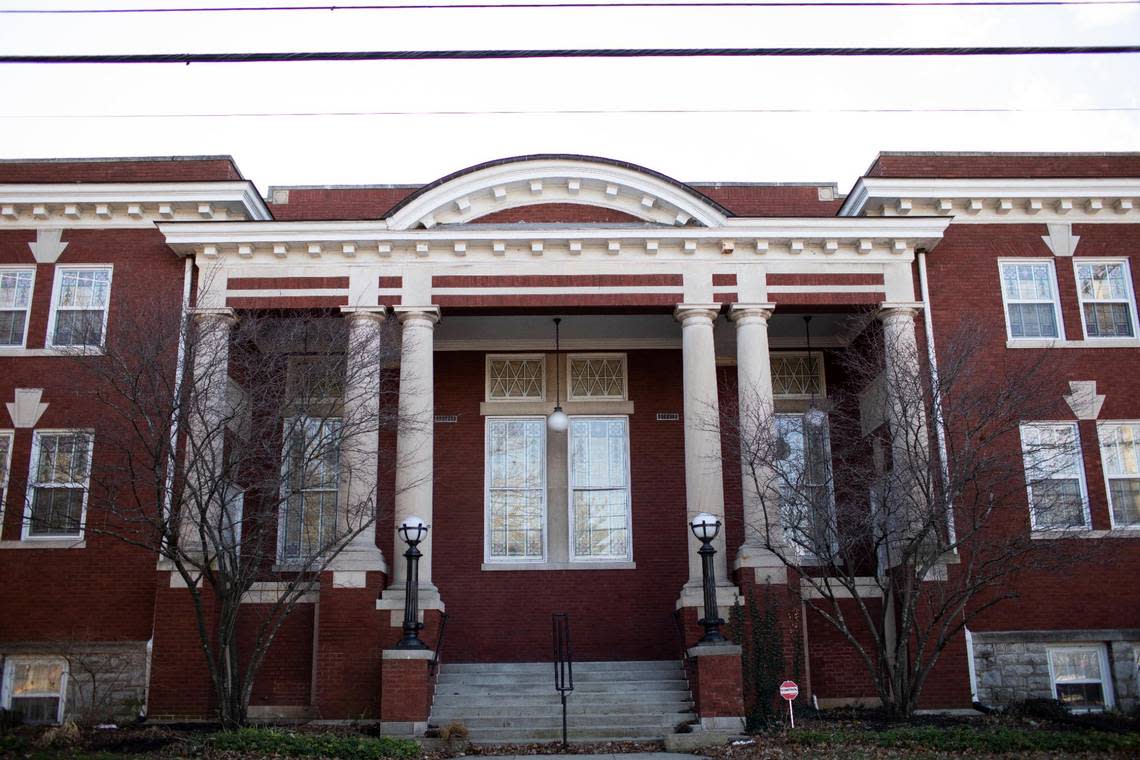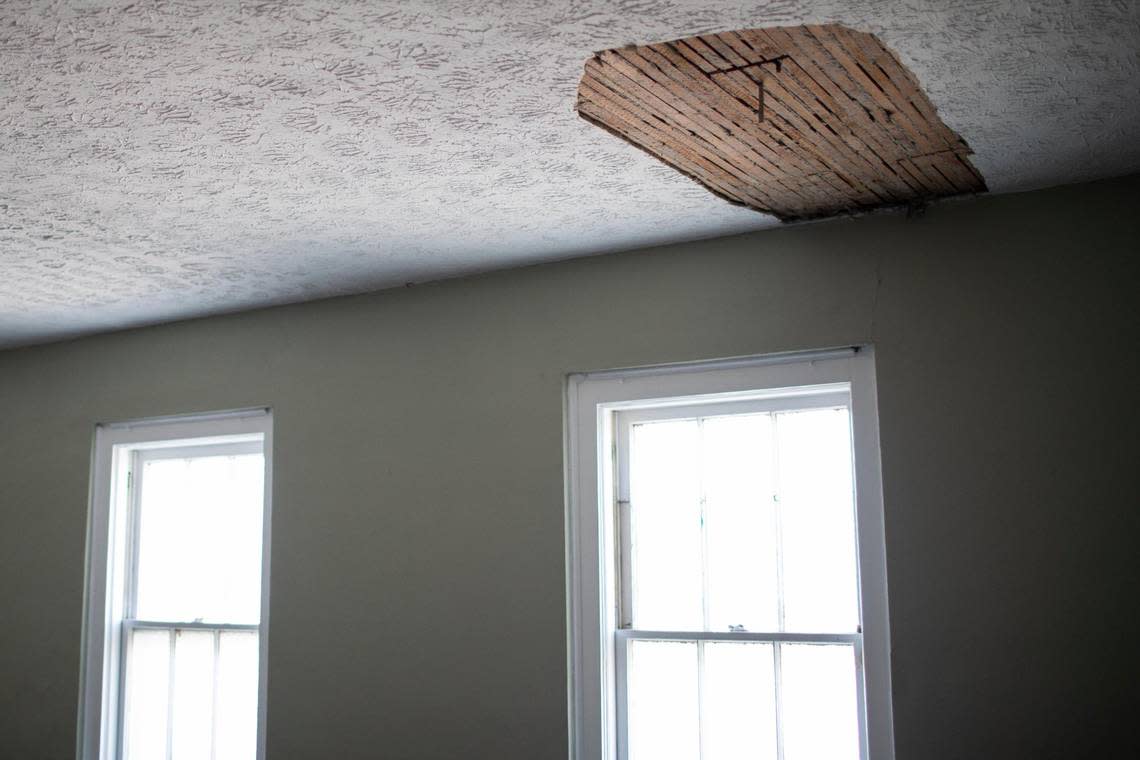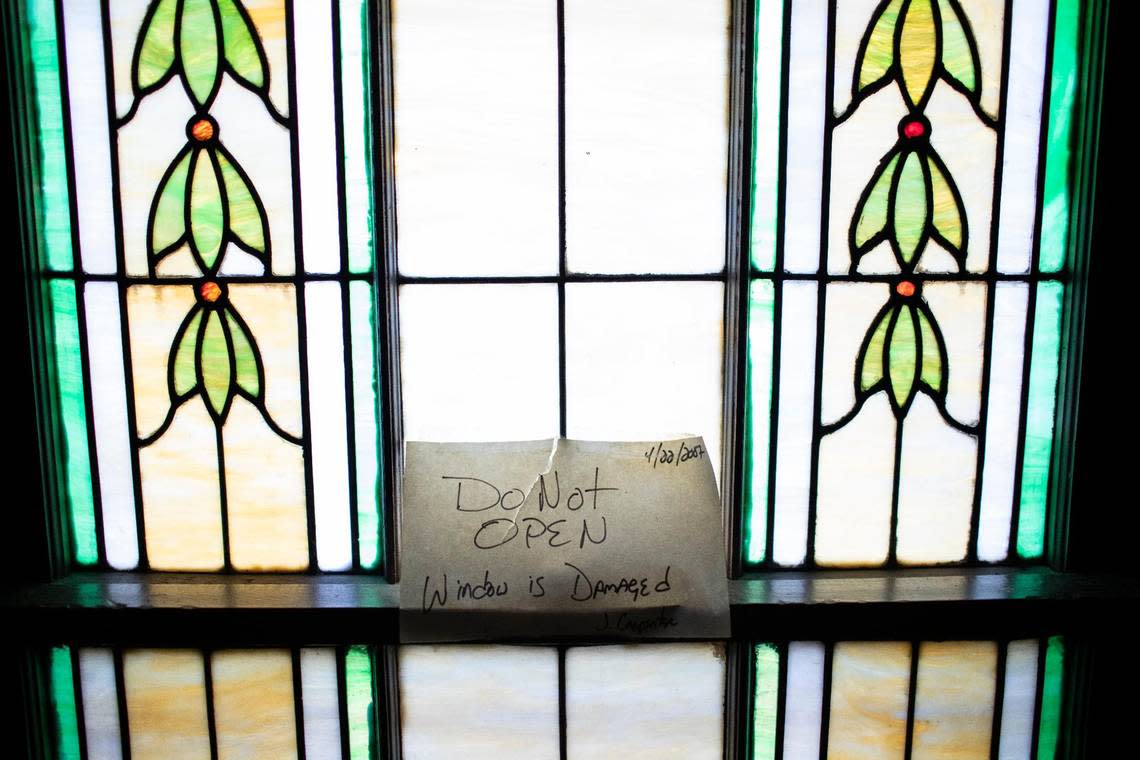This historic Lexington church was in trouble. An innovative housing plan could save it.
On Christmas Eve, the 60-some members of Woodland Christian Church will worship together in the basement, sitting around a makeshift altar with a cross draped in purple. The grand, gleaming semi-circle of chestnut in the upstairs sanctuary — where 400 congregants used to gather — will be empty and dark, as it’s been for the past year and a half, when 100-year-old plaster started raining down.

The congregation will hold their own Christmas wishes in their hearts, but they will also say a special prayer for the church’s survival, and an audacious plan they’ve hatched to ensure it.
Woodland Christian, which opened its doors in 1924, wants to get into the affordable housing business, turning empty classrooms and the grassy lot next door into housing for low-income seniors. To work, it still needs approval from the Kentucky Housing Authority for the tax credits that can pay for renovation and construction. It’s a plan not of charity, but of mutually assured survival, one that could help Lexington with a few more needs met, a church that could renovate and grow instead of closing its doors, and a private business that will show that you can do well by doing good.

The only loss might be a few parking spaces and the bus-stop football for generations of Spanish immersion students who pick up the bus to Bryan Station there.
“A year ago, we had no idea what our future might hold,” said Woodland Christian’s pastor, Rev. Christy Jo Harber. “Would we have to sell our beloved historic church property? Would we be forced to sell parcels of our land? We had no idea but our church is a small, mighty and faithful church and we dared to believe that God was not finished with us or our story.”
From Cane Ridge to High Street
The story is an old one, dating back to the Great Revival of 1801 at Cane Ridge outside of Paris. The Disciples of Christ denomination formed into groups all over Kentucky, including the Lexington Christian Church in 1816 under Pastor Barton W. Stone.
By the end of the 1800s, several Disciples of Christ congregations started meeting in the City Auditorium that sat in Woodland Park. In 1908, the Woodland Christian Church was founded on land bought across the park. In 1922 the cornerstone was laid on the red brick Colonial Revival building designed by architect H. A. Churchill. Its history, says congregant Richard Day, is one of “progressivism,” from pushing back against the KKK in the 1920s to supporting women’s suffrage and civil rights through the following decades. In the late 1970s, Day said, one of Lexington’s first food pantries started at Woodland Christian, which eventually became God’s Pantry.
Through the years, the church grew to almost 500 congregants. But like so many other main-line churches, in recent years people stopped coming to church, a decline sealed by two years of COVID-19. Today, there are about 60 full-time worshipers. That tiny group got a harsh wake-up call from a building needs assessment that estimated the entire building needed a minimum of $1 million in renovations. That was money the church simply did not have.

“What do you do with a building of this size and a small congregation?” Day asked. “I hope that we have come up with something potentially unique.”

A great project
The plight of Woodland Christian came to the attention of Zach Worsham, a principal at the family-owned business of Winterwood Inc., based in Lexington, which develops and manages more than 11,000 units of affordable housing across five states. Worsham came to meet with Woodland Christian congregants and saw a great deal of possibility in the empty classrooms behind the sanctuary and the grassy lot the church owns next door.
“This is the kind of project we’re really passionate about,” he said.
Winterwood came up with a plan to build about 38 one-bedroom units for senior citizens who make less than 60% of the area median income. Some would be located in former nursery and classrooms on the three levels behind the church; the majority would be new construction in the lot next door.
Harber said some neighbors had expressed concerns about parking. Woodland Christian owns the parking across Kentucky Avenue, which it permits to some Maxwell Elementary staff and local business owners. Senior housing typically does not require a lot of parking, so she hopes they will still be able to offer some.
The $9 million project was approved by the planning commission. But the project depends on the approval of federal and state historic and affordable housing tax credits that must be approved by the Kentucky Housing Authority. That group will announce its decision in January. The money raised from selling the tax credits would cover all the renovations needed, including making the sanctuary ADA compliant.
The city of Lexington is waiting on the Kentucky Housing Authority’s decision before it gets involved. Then the local Affordable Housing Fund could provide some bridge financing.
“We think it’s a great project and expect to invest in it once it gets through all the approvals,” said Charlie Lanter, the city’s commissioner of Housing Advocacy and Community Development. “We don’t get a lot of opportunities to develop affordable housing in the historic core of downtown near the services people need.”
Evolving a church community
Harber wants to see a full merging of the church and senior community, as well as opening the sanctuary into a performing arts space. As she noted, many churches have been converted to other uses, but not that many have been converted while a congregation remains.
The church basement will continue in its many uses, such as a voting site, a meeting place for groups like AA and the Aylesford Neighborhood Association, the Girl Scouts and counseling. Harber says she’s also hoping to partner with the University of Kentucky on classes and resources for their new senior population.
“To be afforded the opportunity to integrate affordable housing into our church and ministry will set an example for how other churches might find community partners that will allow their ministry and community service to increase exponentially,” Harber said.
It’s the kind of infill development Lexington needs, as well as an innovative and creative model for churches moving forward. By January, they should know if the project can proceed and whether Woodland Christian might survive another 100 years.
